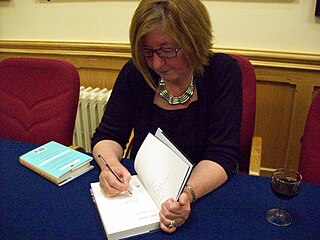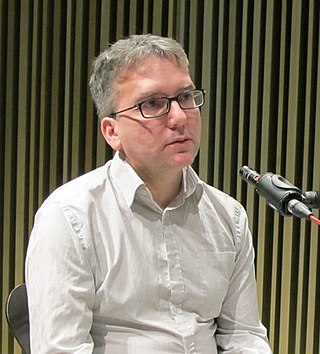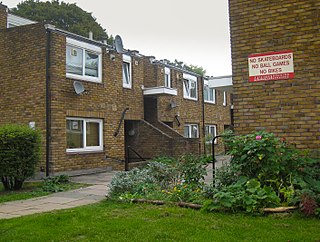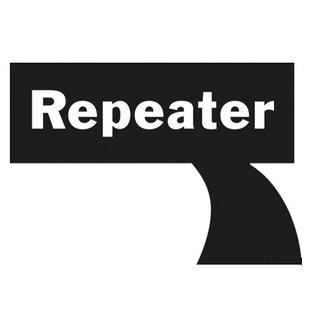
The 2004 election to the post of Mayor of London took place on 10 June 2004. It was being held on the same day as other local elections and the UK part of the 2004 European Parliament elections, so Londoners had a total of five votes on three ballot papers. Polling opened at 07:00 local time, and closed at 22:00. See: 2004 UK elections. The Supplementary Vote system was used.

Patricia Mary W. Barker, is a British writer and novelist. She has won many awards for her fiction, which centres on themes of memory, trauma, survival and recovery. Her work is described as direct, blunt and plainspoken. In 2012, The Observer named the Regeneration Trilogy as one of "The 10 best historical novels".

Sir Geoffrey John Mulgan CBE is Professor of Collective Intelligence, Public Policy and Social Innovation at University College London (UCL). From 2011 to 2019 he was Chief Executive of the National Endowment for Science Technology and the Arts (NESTA) and Visiting Professor at University College London, the London School of Economics, and the University of Melbourne. In 2020, he joined the Nordic think tank Demos Helsinki as a Fellow.

G. P. Putnam's Sons is an American book publisher based in New York City, New York. Since 1996, it has been an imprint of the Penguin Group.

Robin Hood Gardens is a residential estate in Poplar, London, designed in the late 1960s by architects Alison and Peter Smithson and completed in 1972. It was built as a council housing estate with homes spread across 'streets in the sky': social housing characterised by broad aerial walkways in long concrete blocks, much like the Park Hill estate in Sheffield; it was informed by, and a reaction against, Le Corbusier's Unité d'Habitation. The estate was built by the Greater London Council, but subsequently the London Borough of Tower Hamlets became the landlord.
In the United Kingdom, an out-of-town shopping centre is an enclosed shopping centre located outside of a town centre. The impact of out-of-town shopping centres in the United Kingdom is studied in the context of urban planning, town centre redevelopment, the retail industry and even public health and gender divides. Due to its significance for these issues, it has been included in the school exam curriculum in geography. There are only about sixteen out-of-town enclosed shopping centres in the United Kingdom. Under current policy, no more will be built. All other British shopping centres are in town and city centres.
Northumberland Park is a ward in the Tottenham area of London Borough of Haringey, in Greater London, England. It is largely residential, consisting of houses and flats. It is the location of Tottenham Hotspur Stadium, the home ground of Tottenham Hotspur F.C. The ward is represented by three Labour councillors. It is named after the Northumberland family who originally owned the land, the family included Harry Hotspur, who Tottenham Hotspur Football Club are named after.

Owen Hatherley is a British writer and journalist based in London who writes primarily on architecture, politics and culture.
Laura Oldfield Ford, also known as Laura Grace Ford, is a British artist and author. Her mixed media and multimedia work, encompassing psychogeography, poetry and prose, photography, ballpoint pen, acrylic paint and spray paint, explores political themes and focuses on British urban areas. Her zine Savage Messiah, which centres on London, was published from 2005 to 2009 and collected as a book in 2011.

Bradley Garrett is an American social and cultural geographer at University College Dublin in Ireland and a writer for The Guardian newspaper in the United Kingdom. He describes his research interests as being at the intersections of cultural geography, archaeology and visual methods and writes that his research is about "finding the hidden in the world". He is the author of five books including Bunker: Building for the End Times, a contemporary account of doomsday preppers around the world, and Explore Everything: Place-Hacking the City, an ethnographic account of the activities of the London Consolidation Crew (LCC), a group of urban explorers Garrett calls "place hackers".

UCL Urban Laboratory is a cross-disciplinary centre for the study of cities and urbanism, based at University College London. It carries out research, education and outreach activities both in London and internationally. The Urban Laboratory was established in 2005. UCL Urban Lab is a department of the Bartlett Faculty of the Built Environment which also co-operates with the faculties of Engineering, Social and Historical Sciences; and Arts and Humanities. The current director and Head of Department is Dr Clare Melhuish, who took on the role from Dr Ben Campkin in 2018.

A Book of Mediterranean Food was an influential cookery book written by Elizabeth David in 1950, her first, and published by John Lehmann. After years of rationing and wartime austerity, the book brought light and colour back to English cooking, with simple fresh ingredients, from David's experience of Mediterranean cooking while living in France, Italy and Greece. The book was illustrated by John Minton, and the chapters were introduced with quotations from famous writers.

Mark Fisher, also known under his blogging alias k-punk, was an English writer, music critic, political and cultural theorist, philosopher, and teacher based in the Department of Visual Cultures at Goldsmiths, University of London. He initially achieved acclaim for his blogging as k-punk in the early 2000s, and was known for his writing on radical politics, music, and popular culture.

Cressingham Gardens is a council garden estate in Lambeth. It is located on the southern edge of Brockwell Park. It comprises 306 dwellings, a mixture of four, three and two-bedroom houses, and one-bedroom apartments. It was designed at the end of the 1960s by the Lambeth Borough Council Architect Edward Hollamby and second architect Roger Westman, and built at the start of the 1970s. In 2012 Lambeth Council proposed demolishing the estate, to replace the terraced houses by apartment blocks. Most of the apartments would then be for sale to the private sector. The residents, those in Lambeth who wish to prevent the gentrification of the borough, and those who want to conserve what they believe to be important architectural heritage, are campaigning to prevent its demolition.
Hyde Group is a housing association in London. It is a member of the G15. It operates in London, the South East, the East of England and the East Midlands.

Dawn Hayley Foster was an Irish-British journalist, broadcaster, and author writing predominantly on social affairs, politics, economics and women's rights. Foster held staff writer positions at Inside Housing, The Guardian, and Jacobin magazine, and contributed to other journals such as The Independent, The New York Times, Tribune, and Dissent. She regularly appeared as a political commentator on television and was known for her coverage of the Grenfell Tower fire.

Repeater Books is a publishing imprint based in London, founded in 2014 by Tariq Goddard and Mark Fisher, formerly the founders of radical publishers Zero Books, along with Etan Ilfeld, Tamar Shlaim, Alex Niven and Matteo Mandarini.

Greenhouse is an eight-storey, mixed-use block of eco-flats in Beeston, Leeds. The building took its present form in 2010, after renovation of a 1938 development, Shaftesbury House. As Shaftesbury House, the building was noted for its technologically innovative, modernist housing of migrant workers. As Greenhouse, it has been noted for an approach to promoting ecological and social sustainability far ahead of most of the UK building industry.

South Kilburn is a large housing estate in Kilburn, in the London Borough of Brent. Typical of brutalist 1960s designs of public housing in the United Kingdom, it is characterised by high-density housing in low-rise flats and 11 concrete tower blocks. It was approved in 1959 and extended in 1963. This scheme was further developed in the late 1960s and early 1970s; redevelopment occurred during the 2010s. The population is predominantly Afro-Caribbean.

Phil Cohen is a British cultural theorist, urban ethnographer, community activist, educationalist and poet. He was involved in the London underground counter-culture scene and gained public notoriety as "Dr John", a leader in the squatter's rights movement but is now better known for his work on youth culture and the impact of urban regeneration on working-class communities, particularly in East London, with a focus on issues of race and popular racism. More recently the scope of his work has widened to includes issues of identity politics, memory and loss, and the future of the Left in Britain.His most recent writing and research focuses on the transformation of object relations within digital capitalism, especially in relation to the Covid-19 pandemic and the environmental crisis. Cohen's academic work is trans-disciplinary and draws on concepts from linguistics and narratology, psycho-analysis and anthropology, cultural history and social phenomenology. He is currently (2022) Emeritus Professor at the Centre for Cultural Studies at the University of East London, a research fellow at the Young Foundation and Research Director of the Livingmaps Network. Cohen is also a member of Compass, a Gramscian think tank within the Labour Party and is on the editorial board of New Formations. His work has been translated into French, German, Swedish, Italian, French and Japanese.
















